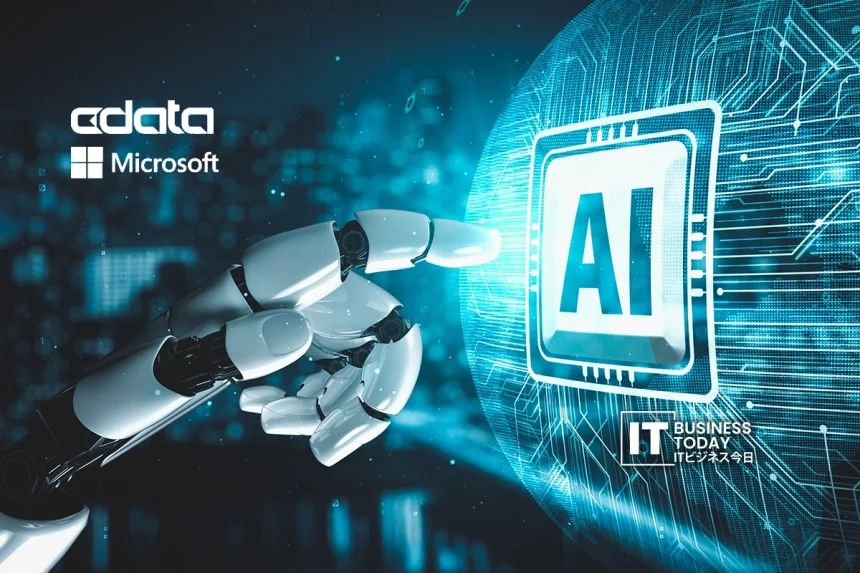CData Software has taken a significant step toward redefining enterprise AI integration. On November 18, the global data connectivity leader announced a launch of Model Context Protocol connectivity for Microsoft Copilot Studio and Microsoft Agent 365 via its Connect AI platform. Companies can now create secure AI agents. These agents can read, write, and interact with real-time data from over 350 enterprise systems. This includes well-known platforms such as Salesforce, SAP, Snowflake, NetSuite, and ServiceNow. This is a significant strategic move.
This announcement is a big step for AI agents in Japan. With an office in Sendai, these agents can now manage complex tasks. They ensure context, security, and accuracy.
Solving the Enterprise AI Bottleneck: Connectivity, Context, and Control
While companies are racing to deploy AI agents in departments ranging from finance to HR, fragmented data ecosystems, a lack of contextual understanding, and limited governance tools have held back scaling efforts on three persistent fronts; CData’s Connect AI platform explicitly targets these gaps.
Also Read: GrowthX Partners Adopts IBM Watsonx for Smart HR
The platform goes beyond connecting APIs by providing semantic intelligence that can make sense of all the metadata, schemas, business logics, and relational structures native across each system. This allows AI agents to carry out multi-sourced queries with precision, appreciate business processes in their entirety, and avoid token-heavy prompt engineering.
As CData CEO Amit Sharma succinctly put it:
“An AI agent is only as valuable as the data it can access and understand.”
With deep integration into Microsoft’s ecosystem, Connect AI has created the bridge needed to make Copilot-driven agents act more like informed digital employees, rather than simple automation scripts.
Similarly, Microsoft added that with Copilot Studio, users can now create agents that interact effortlessly with hundreds of datasets, while IT teams maintain strict visibility and governance via Agent 365.
Why This Matters for Japan’s Tech Industry
Japan is quickly updating its business technology. This change is mainly due to progress in manufacturing, logistics, finance, and the public sector. As AI use grows, it’s crucial to unite data from old systems and new cloud apps. This helps you stay competitive.
CData’s new MCP integration directly supports that modernization in a number of ways:
A Breakthrough for Japan’s AI Agent Adoption
Japanese companies traditionally operate highly complex IT environments that are heavily customized. Connect AI’s ability to integrate with more than 350 systems out of the box means companies don’t need heavy redevelopment to incorporate AI automation.
With semantic intelligence built in, AI agents can finally understand relational data in systems that Japanese enterprises rely on—whether on-premises or in hybrid cloud environments.
Strengthening Japan’s Data Governance and Compliance Posture
Japan’s rigid data protection culture requires strong authentication and governance. Connect AI inherits RBAC permissions directly from source systems, supports OAuth/SSO, and logs all access. IT teams confidently deploy AI without losing control of sensitive datasets.
This aligns well with regulatory requirements in industries such as banking, medical, and public agencies.
Acceleration of Digital Transformation in Japan
The Japanese Government has been pushing the DX mandates to eradicate legacy bottlenecks, joined by major corporations. AI agents that can interact in real time with data across multiple systems certainly fit into this initiative.
Empowering Japanese SaaS Vendors and System Integrators
Japan’s SI sector would be one huge beneficiary-Fujitsu, NTT Data, SCSK, NEC, etc. MCP-powered workflows make AI agent development dramatically easier, and create opportunities for new service offerings.
Local SaaS providers can boost product competitiveness by embedding CData-powered connectivity to support global expansion.
What Businesses in Japan Can Expect Next
With CData’s unified platform, seven marquee capabilities come to the fore: universal connectivity, semantic-rich modeling, identity-first security, and token-efficient processing. What this means for Japanese businesses is:
faster AI deployment cycles
Reduced development costs
better decision making with real-time data access
more precise, department-specific performance of AI agents
Simplified integration across hybrid IT infrastructures
Because the platform is fully hosted and managed, companies can begin configuring data pipelines within minutes, even on the free tier. This ease of adoption is particularly important for Japan’s fast-growing but resource-constrained mid-market enterprises.
A Transformative Moment for Enterprise AI in Japan For CData, this collaboration with Microsoft is much more than about the release of a product; it’s a movement toward intelligent, context-aware, secure automation that enterprises in Japan have sought after for years. For the first time, an organization will be able to build AI agents that can act with precision, governance, and scalability in complex business environments by consolidating access on one MCP platform to hundreds of systems.
AI agents are shifting from experiments to essential enterprise tools. This change will greatly impact Japan’s tech scene. It will affect everyone, including startups, SIs, and big companies. Japan can boost its AI-driven digital transformation by working together. This approach ensures that security and compliance remain priorities.








